- Home
- Malorie Blackman
Nought Forever Page 5
Nought Forever Read online
Page 5
My half of the room was sterile and blank, and I hadn’t really brought much to change that. We put my bags on the new-looking twin mattress. I wasn’t sure if I was supposed to unpack right then, so I just pulled out a few random items and set them on my desk hutch: a stack of brand-new notebooks and a box of pens, purchased by Ruth; Kleenex; a picture of Mom and Dad and me one Christmas; Mom’s pre–Quake Lake picture; the picture of Margot and Mom, which Ruth had looked at sort of funny while inspecting my luggage but had let me keep. Make an effort, I thought. I added my Extreme Teen Bible.
Ruth was examining that big bulletin board. She seemed to be noticing my lack of color in the face of all that was the Viking Erin. Maybe it made her a little sad for me. She reminded me to grab the reading lamp and alarm clock from the Fetus Mobile before she left with them.
“I think you’re going to do really well here, Cammie. I mean it.” She reached out to put an arm around me and I stepped away from her, pretending that I had a sudden and compulsive interest in looking out the window I’d be looking out all year. The view was unbelievable, so there was that, anyway.
Thank God Jane got us out of there. “Would you like to stop by the dining hall? Rick thought you might be hungry. There’s sandwich stuff.”
“Sounds good,” Ruth said, already out the door.
Jane squeaked fast behind her. I paused at the bulletin board. There was one girl repeated in every photo. Had to be Erin. I was right about everything but the acne. Her skin was as clear as those girls in Noxzema ads, maybe due to her prayers before lights out. God grant me flawless pores. God grant me a healthy glow.
• • •
We were only just finished with egg salad on white when a big blue van pulled up outside, and the sliding door with the silver God’s Promise logo slid open, and my fellow diseased poured out like a rush of holy water to pass over me and cleanse me and envelop me into their stream.
It was Hi, I’m Helen. We’re just so glad that you’re here. And I’m Steve. We just bought tons of Cap’n Crunch. Are you into Cap’n Crunch? So good. And Mark and Dane said they’d show me the lake, and Adam said he’d heard that I was a runner, and that he ran in the mornings and had seen tons of elk and deer and even a moose once or twice. And those things are freakin’ huge. And it was these tight little embraces, and touching my arm, and these shiny, shiny eyes, and everyone smiling at me like we were all plastic characters out of some board game like Candy Land or Hi Ho! Cherry-O. And the thing I kept thinking was: Is it really okay to be doing all this touching?
I looked at Jane, who seemed just as royally awkward, that camera still hanging from her neck, and I checked to make sure, in all this goodness and light, that her fake leg hadn’t suddenly healed itself, sprouted anew and perfect and pure. It hadn’t. That was something.
The Viking Erin was the last off the van. She stepped from it like it was a carriage once sprung from a pumpkin, all these bright-eyed well-wishers her subjects, her court, and me the new lady-in-waiting. She was confident in her denim overalls and sandals, her curls shiny and healthy; everything about her—even her roundness, her softness—made her seem somehow healthy. Maybe I was totally wrong about this girl. Maybe she was their leader?
She shrieked when she saw me. And then the giggle, a trajectory of such giggles. As we hugged, she said everything that prayer on her door, that bulletin board, had told me she would. How she was so glad to again have a roommate, and so glad we would take this journey together, and so glad that I was athletic, because she had been really trying to become so herself. I was more pleased with me in that moment, in the actualization of my intuition, than I would be for weeks.
But while Erin was cheerful and pleasant, she lacked a certain something that some of her equally affectionate classmates did not. I just couldn’t place it, that something. I studied Jane’s face, tried to read it. One final embrace from Adam shrouded me briefly in a sweet, sticky smell that I struggled for a moment to identify, but only because of my surroundings. In the embrace’s release I caught the scent again. Unmistakable. Marijuana. These homos were high as kites.
Ruth was over with Reverend Rick, who was in his rockstar weekend attire of jeans and a T-shirt, and when we caught glances, he gave me a big smile and a wave. He seemed just the same as he had when he’d visited Gates of Praise. And Ruth wouldn’t know this smell if she was handed a joint. If she was handed a bong. Were they all high? Was Pastor Rick high too? I couldn’t get a read on Jane. She was talking with the Cap’n Crunch guy about the group’s purchases. A couple of them were already dispersing to their rooms, to the kitchen. Freedom time, Jane had said. I would have taken my high outdoors.
Despite how unnatural the movement, I leaned in close to Erin as she listed off various furniture arrangements we might try in our room, for fun. I pretended like I was having trouble hearing her. “So you’re all about the Vikings, huh?” I asked, inhaling deeply. Nothing except dryer sheet–smelling overalls. “You know it! Don’t worry—you’ll get decoration privileges soon. Maybe you’ll become a Vikings fan in the meantime.” Erin started up a lengthy question-and-answer session, and for the second time that day, it was Jane who played my rescuer.
She was just so authentic with that clipboard. “Sorry, you two,” she said. “Rick needs to meet with your aunt. He said I should finish showing you around.”
I thought that I was done with Jane as semidisinterested tour guide, but seeing the clipboard, the implied authority of the good preacher, and Erin was off to our room. She couldn’t wait, though, she told me, until we could just gab and gab.
Jane said something to Reverend Rick. He nodded at me again, everything just so, well, cool, relaxed. Then Jane took me to the hayloft of the main barn. She struggled climbing the ladder, its wood old and gray, but she struggled like it was a common thing. I could tell she came here often. Me a townie kid and always discovering things of such importance in barns.
“So now you’ve met your fellow sinners,” Jane said as she motioned for me to sit at the loft’s edge, which I did, while she settled in next to me. She had to put her hand against a post to do it, but she was surprisingly nimble. Everything was surprising: Jane, the place itself. “Any thoughts, observations?”
I just went for it. Why not? “Were they all high?” I asked as our legs swung free over the edge, Jane’s with that squeak every second and a half or so.
She laughed a small laugh. “Good for you,” she said. “It’s not everyone—there’s actually only a few of us repeat offenders.”
“So you too?”
“Yeah. Me included. You didn’t think Erin was one, didja?” Jane did this little smile, but not at me. Out at the barn.
“No. I figured that out pretty quick.” I flicked pieces of hay over the edge just to watch them flutter and sail. “Doesn’t Reverend Rick catch on? A couple of them smelled like they came straight from Woodstock.”
“He can’t smell. Not at all. He hasn’t ever been able to—since birth. You’ll hear all about it. He loves to find meaning in his not being able to smell.” Jane flashed a quick picture of some falling hay. She used that camera like a whip.
“What about everybody else?”
“You just met them. They don’t need to get high. God is the best high, right?” Jane actually hooked my eyes to hers with that line. But she wouldn’t let them stay that way.
“Why don’t they tell on you?”
She smiled to herself again. “Sometimes they do.”
“What does that mean?”
“You’ll see. Whatever you think this place is, you’ll be in for a surprise. I mean it. You just have to be here for a while and you’ll understand.”
“It’s not like I have a choice,” I said. “I’m stuck here. This is where I am.”
“Then I’m guessing you’ll want in.”
“With what?”
“The pot,” Jane said, so matter-of-factly.
I hadn’t thought it would be this easy. Or maybe it wouldn�
�t be easy at all, but she had offered. “Absolutely,” I said.
“Do you have any money?”
“Some,” I said. We weren’t supposed to bring any money with us; that was in the manual. But I’d rolled about $500 worth of lifeguarding cash and leftover bills from Dad’s dresser drawer, twenties and fifties, into tight little bundles barely thicker than chopsticks, and I’d hidden those in various locations throughout my luggage, so that even if some of them were found, others might escape.
Jane was messing with the straps and buckles on her leg, pulling at things. It was grossing me out. The stump was all covered with a brace and padding, but I was afraid that if she didn’t stop messing with it soon, it wouldn’t be.
She noticed me noticing this. “I keep some of the stash in my leg. I have a little compartment hollowed out. You’ll get over it.”
“I’m fine with it,” I said, throwing lots of hay and not looking.
“No you’re not. But you will be after a couple of hits.” In her fingers was a baggie with a good amount of pot in it, and also a soapstone pipe.
I was impressed. “I’m impressed,” I said.
Jane packed the pipe like someone who had done it plenty of times before, replaced the bag, and pulled forth a red Bic. “I’m resourceful. I’m actually a bit of an off-the-land type, you know? I was born in a barn.”
It seemed like the setup for a punch line. “Oh yeah. You and Jesus.”
“Exactly,” she told me, exhaling, passing the pipe.
It was strong but harsh, potent is maybe the word, though not necessarily enjoyable going in. My eyes watered immediately.
“You’ll get used to it,” Jane said as I hacked like a sick cat. “I do the best I can for what’s essentially ditch weed.”
I nodded at her, squinting, and tried again, let the smoke fill me up while closing my eyes, passing her the pipe before letting myself fall back into the hay. “Where do you guys buy from?”
“From me. I grow it a couple of miles from here, just enough to last us the winter. If we’re careful,” she added before sucking in again.
I propped myself up on my elbow and studied her as she held in the smoke. “No shit? You’re the resident weed farmer?”
She passed the bowl again and settled herself down in the hay with me. “I just told you; I’m an off-the-land type.”
“So how’d you end up here?”
Jane raised her eyebrows in what I guessed was supposed to be a mysterious way. “The tabloids,” she said, offering nothing else.
“Like because of your name?” I asked.
“Sort of. Not exactly.”
Jane was relishing this moment, I could tell. She’d been around long enough to see new students come to Promise and leave Promise, and she knew exactly what I was looking for: her story, her past, the sequence of events that had led her to this place to be saved, just like me. Something about being sent to Promise made me desperate to hear her tell it, to hear all the stories of all the students, right up to the part where their parents, their aunts, whoever, drove down that road and into the parking lot to drop them off. I don’t know why the desperation, exactly. I still don’t know. Maybe it was feeling like we all had shared history, somehow. That understanding somebody else’s path to Promise would help me make sense of my own. What I know is that all of us, all of us, collected each other’s pasts and shared them, like trading Garbage Pail Kids cards—each one wackier and stranger and more unlikely than the next. But I don’t think anybody’s ever quite trumped Jane’s. Her whole story was suspended in the thick fog of strong pot and a hot August afternoon in a hayloft, so the way I remember things, and the way she told them, might not be one and the same. But that doesn’t matter so much as the realization I had while she was telling it—namely that my own past maybe wasn’t nearly so movie-of-the-week as a lifetime in Miles City had convinced me it was.
• • •
Jane was raised until the age of eleven on a commune just north of Chubbuck, Idaho. The way she told it, it was as if roadies for the Grateful Dead had crossed with some Amish, and this place was the result. It was good land, left to one of the founders by a grandfather. The commune citizens dug crystals of quartz and amethyst out of the ground, polished them up, sold them at touristy gem shops or art fairs. They grew corn and carrots, Idaho potatoes for sure, and hunted deer and elk. Jane’s mother was a beauty, a dark-haired woman from New Mexico, and she was the commune’s princess, loved by all. And given all that loving, Jane had two dads.
At a place like that, Jane told me, paternity tests meant nothing. Who can truly claim ownership of a soul? Of a life? Shit like that. One possible father was Rishel—the commune mechanic with watery eyes and a slouchy walk and always a roll of all-cherry Life Savers in his back pocket. The other possibility was Gabe. He was some sort of professor. He’d work at a community college for a semester teaching literature and poetry and then spend the next semester on the commune. He rode a Vespa and had a little beard, smoked a Sherlock Holmes pipe mainly as a prop.
Somehow those men, who in high school might have slunk away from one another in an empty hallway, found respect for each other out there on that commune. Or at least something like respect. The naming of the baby was only a minor roadblock.
Rishel wanted Jane, for his mother: a wedding-cake maker from Chubbuck who had put her head in her bakery’s oven after finishing a five-tier. Gabe wanted Jane for, you guessed it, his own mother: a breast cancer–surviving meter maid from Saratoga. And there was no question of the last name, Jane would take her mother’s, and it was Fonda, and they had all enjoyed Barbarella (for varying reasons—Gabe: ironically; Rishel: genuinely), so there you go. Jane Fonda it was.
Gabe called the name a triumph of postmodernism.
Rishel called the name simple and straightforward. Plain.
A good choice.
Jane Fonda was born in the commune barn in December, with a retired ER nurse named Pat pulling her free. Pat was apparently the nurse straight outta Romeo and Juliet, loud and self-assured, with a mass of gray braids and pink hands like slices of ham. Pat and her lover, Candace, a retired cop, had recently moved to the commune to spend their pensions toward the good of the whole. Before Idaho they’d lived on one of the lesbian separatist Womyn’s Lands in Southern California, owned and run by several of Berkeley’s Gutter Dykes. Pat and Candace had enjoyed their time in a womyn-only utopia until they’d headed to Canada for a folk festival, stopped to see friends in Chubbuck, and just never quite made it back.
Pat and Jane Fonda were close. Then Pat died in a snowmobile accident, the same accident during which Jane mangled her leg. So in one afternoon, there went her leg, from the knee down, and there went her nurse and role model. Gabe hadn’t been back on the commune for maybe two years before that, and Rishel never knew quite what to say about tragedy without still sounding like The Farmer’s Almanac.
Not on the night of Jane’s birth, not at all, but later, Jane’s mother would glean from the evening all kinds of Christian significance. The manger, the month, the bright starry night, even the trio of wise-ass commune musicians plucking out tunes to birth by and passing around a pie for all to share. No one could ever quite get straight why Jane was born in a barn in the first place. They had a couple of cabins, several warm tepees.
“Because it was God’s hand,” Jane’s mom had later decided. Jane’s mom was sticking with that.
THE BEGINNING
Let the conversation begin …
Follow the Penguin twitter.com/penguinukbooks
Keep up-to-date with all our stories youtube.com/penguinbooks
Pin ‘Penguin Books’ to your pinterest.com/penguinukbooks
Like ‘Penguin Books’ on facebook.com/penguinbooks
Listen to Penguin at soundcloud.com/penguin-books
Find out more about the author and
discover more stories like this at penguin.co.uk
PENGUIN BOOKS
UK | USA | Canada | Irela
nd | Australia
India | New Zealand | South Africa
Penguin Books is part of the Penguin Random House group of companies whose addresses can be found at global.penguinrandomhouse.com.
www.penguin.co.uk www.puffin.co.uk www.ladybird.co.uk
First published 2019
Text copyright © Oneta Malorie Blackman, 2019
The Miseducation of Cameron Post text copyright © emily m. danforth, 2012
The moral right of the authors has been asserted
Cover illustration by Fruzsina Czech
All correspondence to:
Penguin Books
Penguin Random House Children’s
80 Strand, London WC2R 0RL
ISBN: 978-0-241-38880-8
This ebook is copyright material and must not be copied, reproduced, transferred, distributed, leased, licensed or publicly performed or used in any way except as specifically permitted in writing by the publishers, as allowed under the terms and conditions under which it was purchased or as strictly permitted by applicable copyright law. Any unauthorized distribution or use of this text may be a direct infringement of the author’s and publisher’s rights and those responsible may be liable in law accordingly.
PRAISE
1€1.50 in Ireland

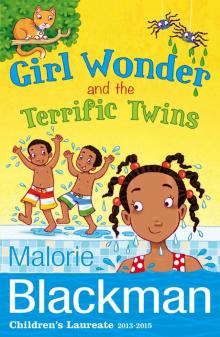 Girl Wonder and the Terrific Twins
Girl Wonder and the Terrific Twins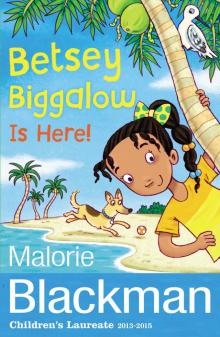 Betsey Biggalow Is Here!
Betsey Biggalow Is Here!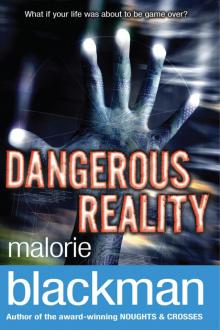 Dangerous Reality
Dangerous Reality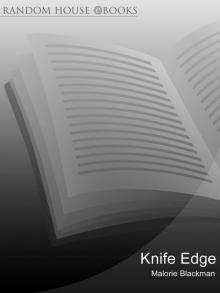 Knife Edge
Knife Edge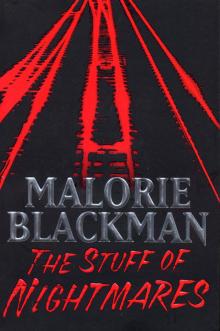 The Stuff of Nightmares
The Stuff of Nightmares Operation Gadgetman!
Operation Gadgetman! Checkmate
Checkmate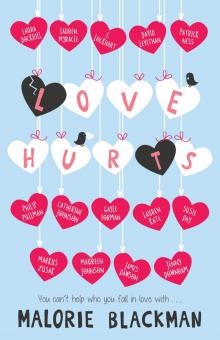 Love Hurts
Love Hurts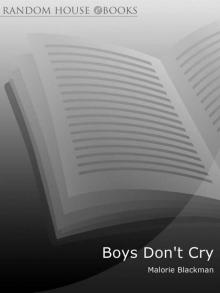 Boys Don't Cry
Boys Don't Cry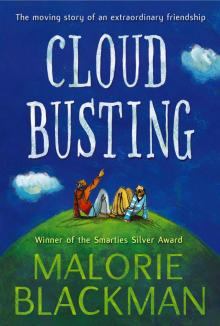 Cloud Busting
Cloud Busting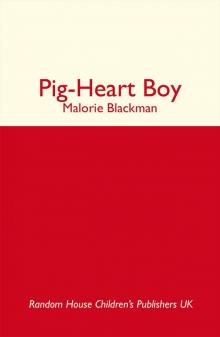 Pig-Heart Boy
Pig-Heart Boy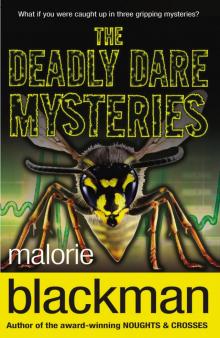 The Deadly Dare Mysteries
The Deadly Dare Mysteries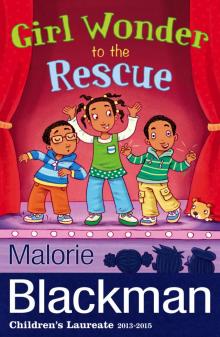 Girl Wonder to the Rescue
Girl Wonder to the Rescue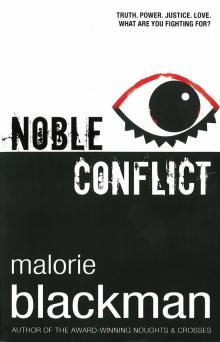 Noble Conflict
Noble Conflict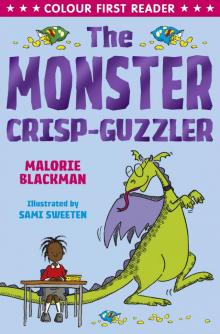 The Monster Crisp-Guzzler
The Monster Crisp-Guzzler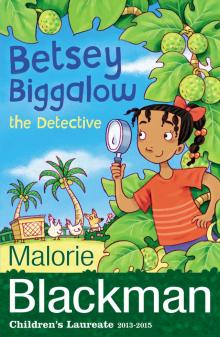 Betsey Biggalow the Detective
Betsey Biggalow the Detective Trust Me
Trust Me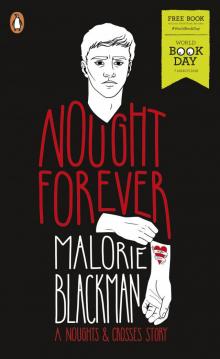 Nought Forever
Nought Forever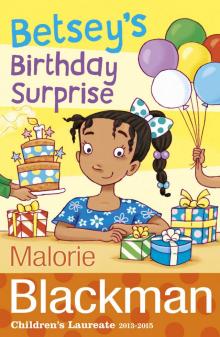 Betsey’s Birthday Surprise
Betsey’s Birthday Surprise Dead Gorgeous
Dead Gorgeous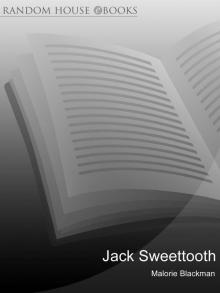 Jack Sweettooth
Jack Sweettooth Crossfire
Crossfire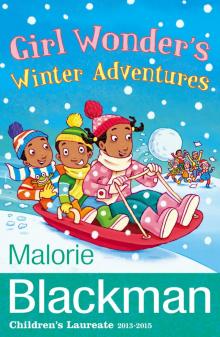 Girl Wonder's Winter Adventures
Girl Wonder's Winter Adventures Whizziwig and Whizziwig Returns Omnibus
Whizziwig and Whizziwig Returns Omnibus Double Cross
Double Cross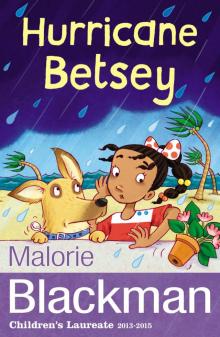 Hurricane Betsey
Hurricane Betsey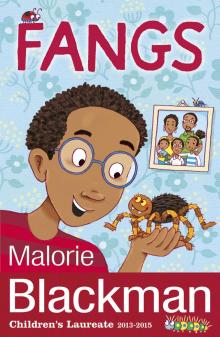 Fangs
Fangs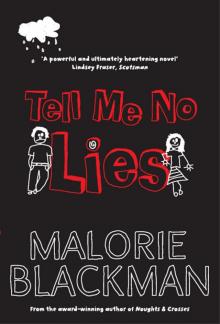 Tell Me No Lies
Tell Me No Lies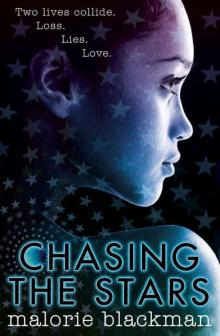 Chasing the Stars
Chasing the Stars Hacker
Hacker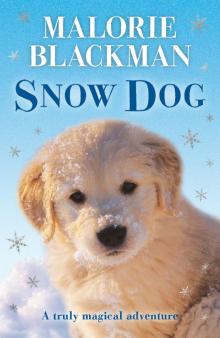 Snow Dog
Snow Dog A Dangerous Game
A Dangerous Game Space Race
Space Race Whizziwig and Whizziwig Returns
Whizziwig and Whizziwig Returns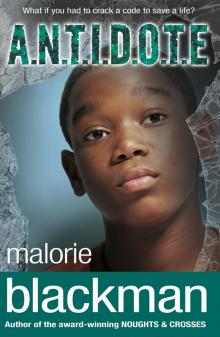 A. N. T. I. D. O. T. E.
A. N. T. I. D. O. T. E.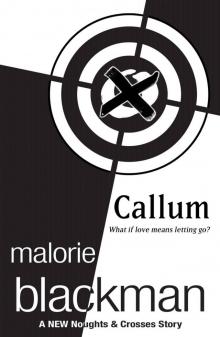 Callum: A Noughts and Crosses Short Story
Callum: A Noughts and Crosses Short Story